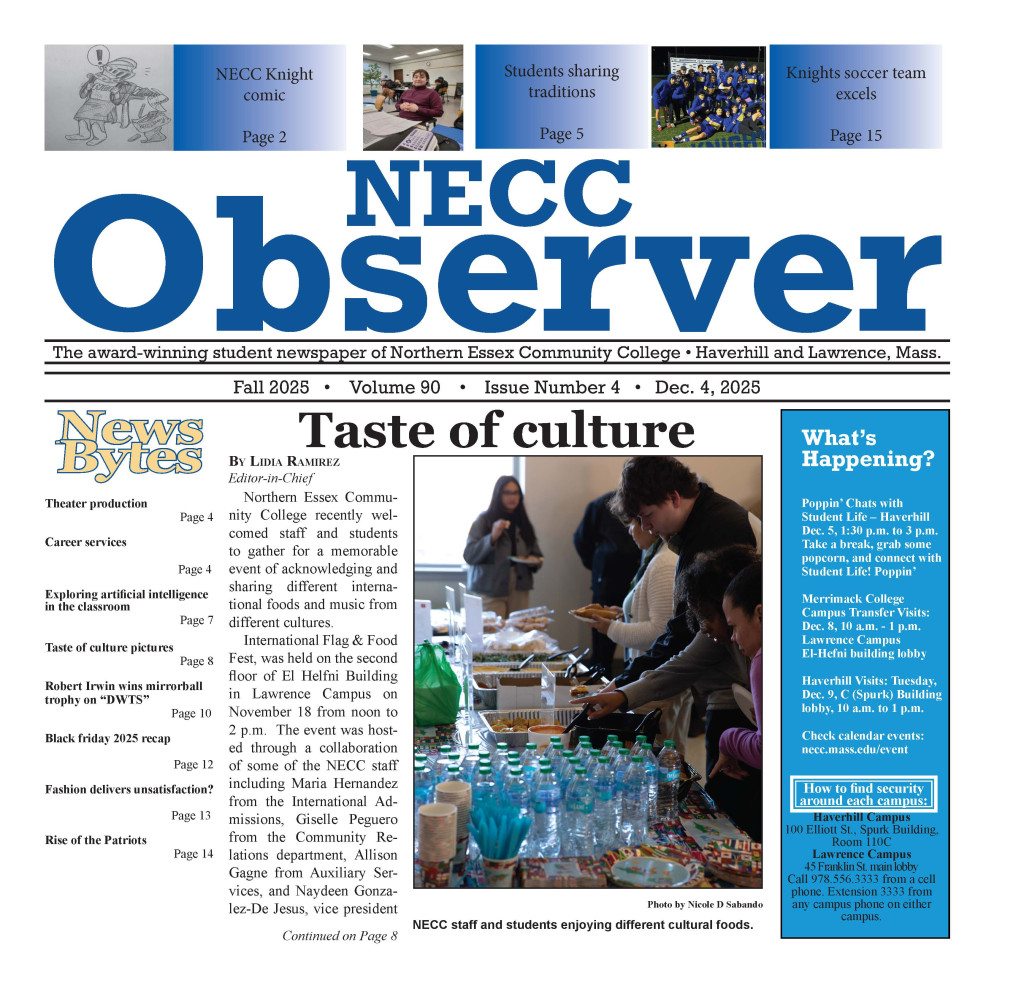To The Staff of The Observer,
As an NECC faculty member, I express my solidarity with students who are advocating for more support from college leadership around the issue of food insecurity. I have two overlapping concerns. First, I also would like to see more attention to food access on NECC’s campuses. Second, more broadly, I see a need for better communication from college leadership.
NECC leadership rightfully reminds its employees to address the whole student. At convocation, college-wide meetings, and Professional Day, awareness of students’ life situations is emphasized, and responsiveness is encouraged. Currently, many NECC students are unfortunately experiencing food insecurity, and that is a big barrier to learning. While colleges cannot completely “solve” the problem, they can do something.
Something is better than nothing.
When students, faculty, and staff learned about the termination of a social worker last spring and voiced our concerns about the future of services to students, including food access, we were told that services would not be diminished but would instead be provided in a different way. I was told that I was mistaken in my concern. It was difficult to believe leadership’s reassurances, though, because information about a new plan was vague and piecemeal. It seemed improvised.
Now, a year later, I understand that providing food access on campus is not a priority for NECC leadership and that they aim to make a greater impact in other ways, such as increasing Federal Pell Grants. It would have been helpful to hear this rationale earlier in the conversation. I understand that there cannot always be transparency in an institution, but currently there is very little or none, and NECC can do better. For example, when the Haverhill food pantry was dismantled last September, college faculty and staff were not informed ahead of time and instead learned the news by word-of-mouth after the fact. No one enjoys delivering bad news, but it would have been more respectful in this situation.
I understand that leadership needs to choose how they direct limited time and resources. Still, I think that NECC can and should do something to address food access on campus, even if it is not a priority. Students have identified this issue as their priority.
Our peer institutions, like Bunker Hill Community College and North Shore Community College, have robust food access programs. I think that we can operate on par with them.
Genuine expressions of concern are acts of optimism. In other words, if people like me didn’t think that our institution could continually grow and change and improve, then we wouldn’t speak up about the challenges. I hope that this can be a turning point for improved communication and student support at NECC.
Sincerely,
Michelle Carter
Professor of Art & Design

